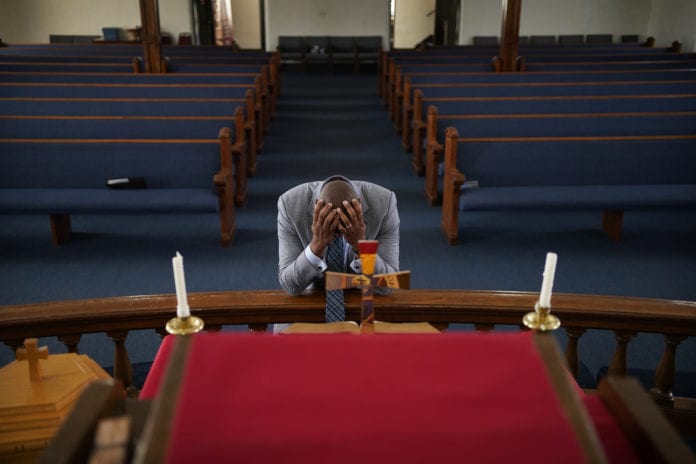TULSA, Okla. (AP) — When white attackers destroyed the prosperous Black neighborhood of Greenwood 100 years ago this week, they bypassed the original sanctuary of the First Baptist Church of North Tulsa.
By the church’s own account, the attackers thought the brick veneer structure was too fine for a Black-owned church. The mob destroyed at least a half-dozen other churches while burning and leveling a 35-square-block neighborhood in one of the nation’s deadliest spasms of racist violence. Estimates of the death toll range from dozens to 300.
On Sunday, First Baptist’s current sanctuary throbbed with a high-decibel service as six congregations gathered to mark the centennial of the massacre and to honor the persistence of the Black church tradition in Greenwood, as shown in the pulsing worship, call-and-response preaching and heavy emphasis on social justice.
Greenwood is “holy ground,” said the Rev. John Faison of Nashville, Tennessee, who preached at the service and is assistant to the bishop of social action for the Full Gospel Baptist Church Fellowship.
He said the centennial both honors the victims of the massacre and “celebrates the resilience and the resurgence of an amazing people of God.”
Similar commemorations took place at many houses of worship throughout Tulsa and across Oklahoma on Sunday, a day ahead of the official centennial dates. More civic activities are planned for Monday and Tuesday, including a candlelight vigil and a visit by President Joe Biden.
The commission that organized the centennial designated Sunday as Unity Faith Day and provided a suggested worship guide that each congregation could adapt, including scriptures, prayers and the singing of “Amazing Grace.”
Particularly at historically Black churches, speakers emphasized a call for financial reparations — both for the few centenarian survivors of the massacre and for the wider, economically struggling North Tulsa area, where the city’s Black population is largely concentrated.
“The main problem is that our nation is always trying to have reconciliation without doing justice,” Faison said. “Until repentance and repair are seen as inseparable, any attempt to reconcile will fail miserably.”
The Rev. Robert Turner, pastor of nearby Vernon African Methodist Episcopal Church, which also traces its roots to before the massacre, echoed that sentiment in an interview before his own church’s service.

